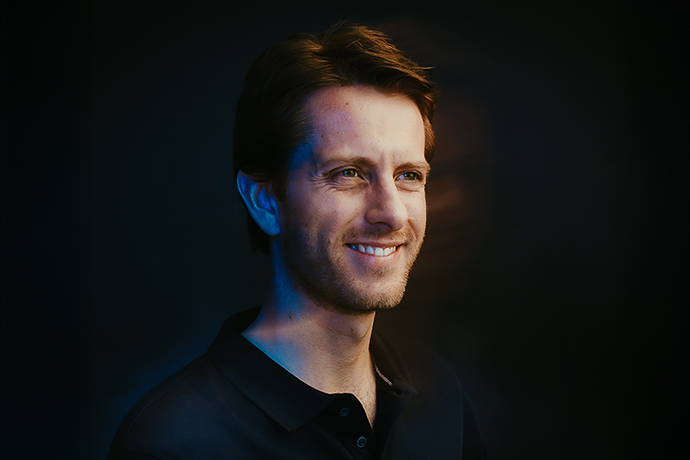 SPEAKERS
SPEAKERS
 TOPICS
TOPICS
Chris Heemskerk explores innovation, culture, and leadership to inspire growth and transformative thinking. His insights help organizations strengthen creativity, adapt to change, and develop resilience in the face of disruption.

Today’s business environment demands expertise that bridges traditional management with emerging technological capabilities. Organizations face unprecedented challenges as digital transformation reshapes industries and redefines competitive boundaries.
Leaders must develop new competencies to guide teams through these shifts. Professional development now goes beyond conventional training, encompassing comprehensive strategies to build capability and organizational effectiveness.
Investing in expert guidance ensures leadership teams have the skills and knowledge needed to maintain market relevance and achieve sustainable growth objectives.
Chris Heemskerk represents a new generation of business thought leaders who combine practical experience with forward-thinking strategies. His expertise spans multiple disciplines, providing comprehensive solutions for leadership and organizational development. Organizations benefit from his unique perspective on implementing effective transformation strategies.
As an organizational culture speaker, he focuses on fundamental elements that drive successful workplace environments. His approach builds sustainable cultural frameworks supporting long-term objectives and structured methodologies for cultural change initiatives.
Modern organizations require speakers who understand the intersection of technology, people, and processes. Disruptive change speakers provide essential guidance for navigating uncertainty. Chris complements this with practical tools to manage transformation across multiple organizational levels.
His speaking engagements reflect deep knowledge of complex business ecosystems and stakeholder dynamics. Audiences appreciate his ability to translate abstract concepts into actionable strategies, enabling effective implementation across diverse operational contexts.
This expertise is grounded in years of hands-on experience with organizations facing significant transformation challenges. It provides credibility and authenticity, resonating with executives and middle management alike.
Professional development programs benefit from his integrated approach to leadership capability building. He emphasizes the interconnected nature of leadership skills, cultural dynamics, and business performance outcomes.
This holistic perspective helps organizations address multiple challenges simultaneously rather than treating symptoms in isolation, creating long-term organizational effectiveness.

Successful innovation requires more than creative thinking; it demands systematic approaches to change management. Innovation and leadership keynotes typically explore the link between strategic vision and practical implementation, offering actionable insights to foster an innovative culture across your organization.
Effective leaders understand that innovation emerges from collaborative environments rather than isolated genius. They create conditions where teams are empowered to experiment, learn from failure, and generate sustainable competitive advantages in dynamic markets.
Innovation leadership involves establishing clear governance structures that support creativity while maintaining operational excellence. Leaders must balance freedom for exploration with accountability for results, applying risk management and resource allocation strategies effectively.
The most successful innovation leaders develop systems for capturing and evaluating ideas across all organizational levels. These frameworks ensure valuable insights are implemented rather than remaining trapped in silos.
Key elements of innovation leadership include:
Innovation leaders also invest in continuous learning programs, exposing teams to diverse perspectives and enhancing creative problem-solving skills alongside technical competencies. This dual approach sustains organizational innovation capacity over time.
The evolving nature of work presents both opportunities and challenges for contemporary organizations. Future of work experts help businesses anticipate trends and prepare for emerging workforce dynamics, providing frameworks to adapt to technological advances and shifting employee expectations.
Remote work, artificial intelligence, and generational shifts are reshaping traditional employment models. Organizations must develop flexible structures that accommodate diverse working preferences while maintaining productivity and performance standards. Strategic planning is essential to manage these transitions effectively.
Workplace transformation requires careful consideration of human factors alongside technological capabilities. Leaders must balance efficiency gains with employee wellbeing and engagement. Chris Heemskerk emphasizes the importance of sustaining human connections in increasingly digital environments.
Digital transformation accelerates rapidly, altering how teams collaborate and communicate. Cloud-based platforms enable seamless integration across geographical boundaries but create challenges in maintaining cohesion. Strategic guidance ensures organizations navigate these technological shifts successfully.
Hybrid working models demand sophisticated approaches to performance management and team development. Traditional supervision methods are often inadequate for distributed workforce structures, requiring leaders to develop new competencies in virtual team management and remote engagement.
Skills requirements evolve as automation transforms job roles across industries. Continuous learning and upskilling programs are essential for workforce adaptability and long-term career growth, preparing employees for emerging opportunities and changing market demands.
Generational diversity adds complexity to modern workplaces, as different age groups bring varying expectations and working styles. Understanding these differences enables organizations to create inclusive environments and leverage diverse perspectives effectively, turning potential conflicts into strengths.
Strong organizational cultures provide stability during periods of significant change and uncertainty. They serve as guiding principles that help employees make decisions aligned with company values. Resilient cultures adapt whilst maintaining core identity and purpose throughout transformation processes.
Cultural development requires consistent leadership commitment and clear communication strategies. As a leader, you must model desired behaviors whilst creating systems that reinforce your cultural values. This approach ensures that cultural initiatives extend beyond surface-level changes to create lasting impact.
Effective cultural transformation begins with a comprehensive assessment of existing organizational dynamics and employee engagement levels. You must understand your organization’s cultural strengths and weaknesses before implementing change initiatives. This foundation enables targeted interventions that address specific organizational needs and challenges.
Building resilient cultures involves creating shared narratives that connect individual contributions to broader organizational purpose. Your employees who understand their role in achieving your organization’s objectives demonstrate higher engagement and commitment. These connections strengthen organizational identity and support sustainable performance improvements.
Cultural resilience emerges through deliberate investment in employee development and recognition programs. Your organization should create pathways for growth that align with your cultural values and business objectives. This alignment ensures that talent development supports both individual aspirations and organizational requirements.
A Chris Heemskerk speaker engagement typically addresses the practical aspects of cultural transformation. These sessions provide tools for assessing current cultural states and designing improvement strategies. Participants learn to identify cultural barriers and develop targeted interventions.
Measuring cultural progress requires establishing clear metrics that reflect both quantitative and qualitative indicators of organizational health. Regular assessment enables leaders to adjust strategies and maintain momentum throughout transformation initiatives. This data-driven approach supports evidence-based decision-making in cultural development programs.
Implementing insights from thought leadership requires systematic approaches to organizational change. Frameworks that translate theory into actionable strategies help organizations avoid common pitfalls and maximize the benefits of transformation initiatives.
Successful implementation depends on stakeholder engagement and effective communication. Change initiatives require buy-in across multiple organizational levels, demanding skills in influence, negotiation, and relationship management to achieve sustainable results.
Contemporary leadership programs increasingly emphasize adaptability and emotional intelligence alongside traditional management skills. These competencies are essential for navigating complex stakeholder relationships and uncertain business environments, generating long-term organizational benefits.
Effective leaders establish clear metrics to measure progress and create accountability structures to ensure consistent execution of strategic plans. Regular assessment allows timely adjustments and maintains momentum during challenging implementation phases.
Cross-functional collaboration is critical when applying new leadership approaches across departments. Leaders must break down silos and encourage knowledge sharing, ensuring transformation efforts produce cohesive organizational improvements rather than isolated pockets of change.
Resource allocation requires balancing immediate operational needs with long-term capability-building investments. Strategic planning helps prioritize initiatives that deliver maximum impact while maintaining business continuity.
Technology integration enhances leadership effectiveness through data-driven decision-making and improved communication. Digital tools allow monitoring of progress, gathering feedback, and maintaining engagement across distributed teams, supporting responsive and informed leadership.
Mentoring and coaching programs amplify leadership development initiatives. Experienced leaders share practical knowledge while developing coaching capabilities, fostering sustainable learning cultures that extend beyond formal training programs.
Modern organizations benefit from engaging with thought leaders who combine practical experience and strategic insight. Expert guidance empowers leaders to navigate complex transformation challenges while building sustainable competitive advantages, creating opportunities for learning, growth, and long-term success.